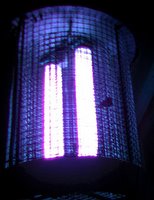 Why bother? What's so bad about having a few wildflowers mixed in with your grass? Why must all the lawn's greens looking monotonously alike? Why shouldn't a lawn, like a garden, have variety of color and shape?
Why bother? What's so bad about having a few wildflowers mixed in with your grass? Why must all the lawn's greens looking monotonously alike? Why shouldn't a lawn, like a garden, have variety of color and shape?Think of the advantages of a natural lawn: Less expensive (no chemicals to buy), less work (no weeding), fewer worries (buttercups won't bug you), fewer potential health hazards (that's poison you're pouring on those dandelions), more color and form (natural lawns are interesting, have variety, offer surprises), and more wildlife (songbirds love weed seeds).
The disadvantages? Well, you’ll still have to mow every week or two. And maybe it's a little tougher to practice your putting.




